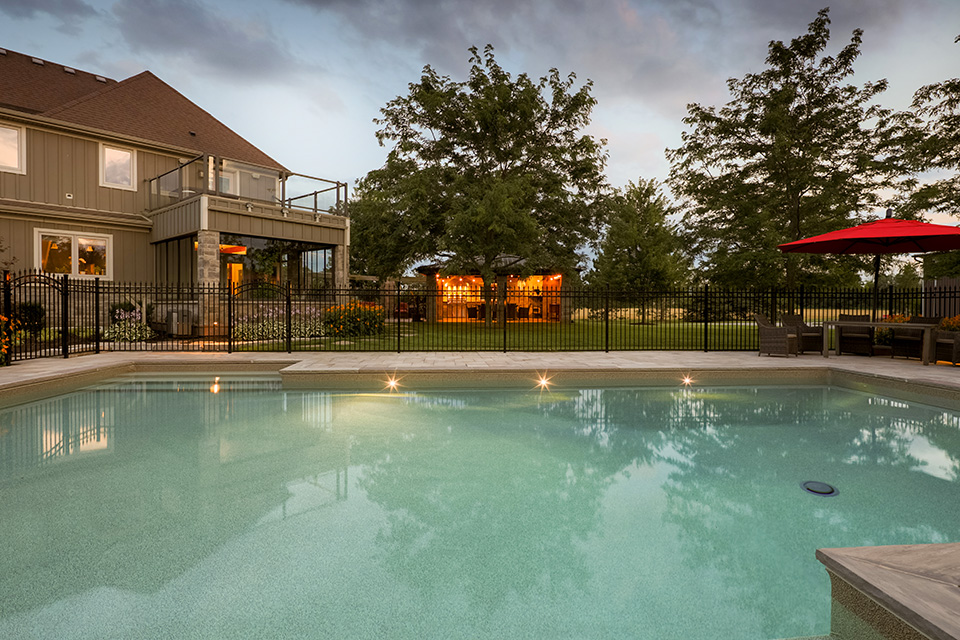Salt Water vs Chlorine Pools: Exploring the Differences and Making a Choice
Advice - Pools
When it comes to choosing a pool for your backyard oasis, one of the main decisions you'll face is whether to go with a saltwater or a chlorine pool. Both options have their own set of benefits and considerations, and the choice ultimately depends on your preferences and needs.
In this blog post, we will explore the differences between saltwater and chlorine pools, highlight the pros and cons of each, and help you decide which one is the right fit for you.
Saltwater Pools - How They Work
Contrary to popular belief, saltwater pools do contain chlorine. However, they use a special generator called a salt chlorinator to convert salt into chlorine. Through a process known as electrolysis, the salt chlorinator produces chlorine and continuously releases it into the water, eliminating the need to handle and add traditional chlorine manually.
The Pro's
- Gentler on the Skin and Eyes: Saltwater pools typically have lower chlorine levels than traditional chlorine pools, making them more comfortable for swimmers. This can be particularly beneficial for individuals with sensitive skin or allergies
- Easier Maintenance: Once properly balanced, saltwater pools require less maintenance compared to traditional chlorine pools, as the salt chlorinator continuously produces chlorine, meaning you don't need to add chemicals as frequently
- Water Quality: Saltwater pools tend to have softer and silkier-feeling water, which many swimmers find more pleasant
- Reduced Chlorine Odour: Saltwater pools often have less of a chemical smell commonly associated with chlorine pools
The Con's
- Higher Upfront Cost: Saltwater pools generally require a larger upfront investment due to the cost of the salt chlorinator installation
- Potential Corrosion: Saltwater can be corrosive if not properly balanced, which can lead to damage to pool equipment and other metal fixtures over time
- Complexity: While maintenance is generally easier, saltwater pools require proper monitoring of salt levels, pH balance, and alkalinity to ensure optimal performance
Chlorine Pools - How They Work
Chlorine pools, also known as traditional pools, require manual addition of chlorine to maintain proper levels. This can be done using chlorine tablets, liquid chlorine, or other chlorine-based products. Regular testing and adjustment of chlorine levels are necessary for maintaining a safe and clean swimming environment.
The Pro's
- Lower Initial Cost: Chlorine pools typically have a lower upfront cost compared to saltwater pools, as there is no need for a salt chlorinator installation
- Flexibility: Chlorine pools provide the ability to adjust chlorine levels as needed, allowing for precise control over sanitation and water balance
- Compatibility: Chlorine pools can be compatible with most pool equipment, as they do not have the corrosive nature of saltwater
The Con's
- Maintenance and Handling: Chlorine pools require regular testing and manual addition of chlorine to maintain proper levels. This can be time-consuming and may involve handling potentially hazardous chemicals
- Skin and Eye Irritation: High chlorine levels in traditional pools can cause skin and eye irritation, particularly for individuals with sensitivities
- Chlorine Odour: Chlorine pools are associated with a typical chlorine odour that some swimmers may find unpleasant.
Consider These Factors
Ultimately, the choice between a saltwater or chlorine pool depends on your personal preferences and specific circumstances!
- Comfort: If you have sensitive skin or eyes, a saltwater pool may provide a more comfortable swimming experience
- Maintenance: If you prefer a lower-maintenance option and are willing to make a larger upfront investment, a saltwater pool can save you time and effort in the long run
- Budget: If upfront costs are a major concern, a traditional chlorine pool may be more budget-friendly
- Corrosion Risk: If you live in an area with high salt content in the air or have concerns about the potential corrosion of your pool equipment and fixtures, a chlorine pool may be a better choice
In the end, there isn't a definitive "right" answer. Both saltwater and chlorine pools can provide a refreshing and enjoyable swimming experience. Consider your preferences, maintenance capabilities, and budget to determine which pool type best suits your needs. And remember, regardless of the pool type you choose, proper maintenance and water care are crucial for a safe and healthy swimming environment.





